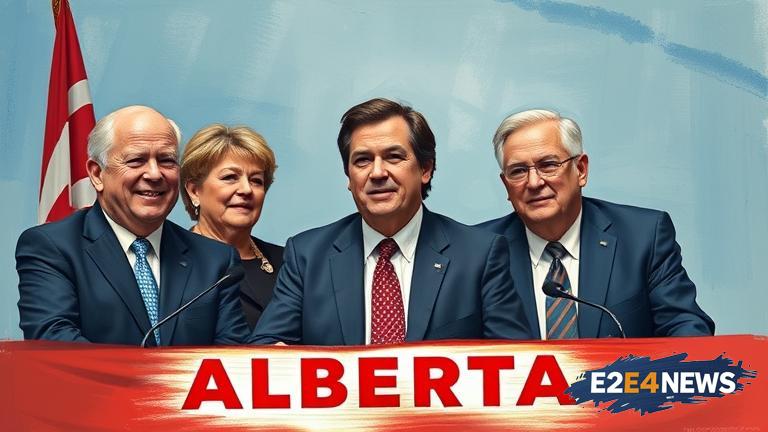In a significant development within Alberta’s political landscape, a faction of United Conservative MLAs, who have become estranged from their party, are taking steps to create a new political entity. This move is seen as a direct challenge to the leadership of Premier Danielle Smith, who has been at the helm of the United Conservative Party (UCP). The estranged MLAs, though not publicly named in all reports, are reportedly dissatisfied with the current direction of the UCP under Premier Smith’s leadership. The reasons behind their dissatisfaction are multifaceted, ranging from policy disagreements to concerns over the party’s internal governance and decision-making processes. The formation of a new party is a complex process that involves not only registering the party with Elections Alberta but also building a grassroots organization, developing a comprehensive policy platform, and securing sufficient funding. The new party aims to offer Albertans an alternative to the UCP, potentially capitalizing on the discontent among some voters with the current government. Premier Smith, known for her conservative stance and her response to the COVID-19 pandemic, has been a polarizing figure, with some praising her leadership and others criticizing her policies. The political climate in Alberta has been volatile, with the UCP facing internal conflicts and external pressures from opposition parties and interest groups. The creation of a new party could further fragment the conservative vote in Alberta, potentially benefiting the opposition parties, particularly the New Democratic Party (NDP), in future elections. However, it’s also possible that the new party could attract voters who feel disillusioned with the existing political options, thereby shaking up the province’s political status quo. The success of the new party will depend on several factors, including its ability to attract credible candidates, build a strong organizational structure, and resonate with voters across different regions of Alberta. As the political landscape continues to evolve, all eyes are on how these developments will impact the future of Alberta’s government and the broader implications for Canadian politics. The move by the estranged MLAs to form a new party reflects deeper issues within the UCP and the challenges of maintaining party unity in the face of diverse opinions and ideologies. It also underscores the dynamic nature of politics, where alliances can shift, and new political forces can emerge in response to changing circumstances and voter sentiments. Alberta, known for its rich natural resources and conservative political leanings, is witnessing a significant moment in its political history, one that could redefine the contours of its political landscape for years to come. The reaction from the public and other political parties will be crucial, as they weigh in on the potential impact of a new party on the province’s governance and the upcoming elections. Ultimately, the fate of the new party, and its ability to challenge Premier Smith’s leadership effectively, will be decided by the voters of Alberta, who will have the final say in determining the direction of their province’s political future.
